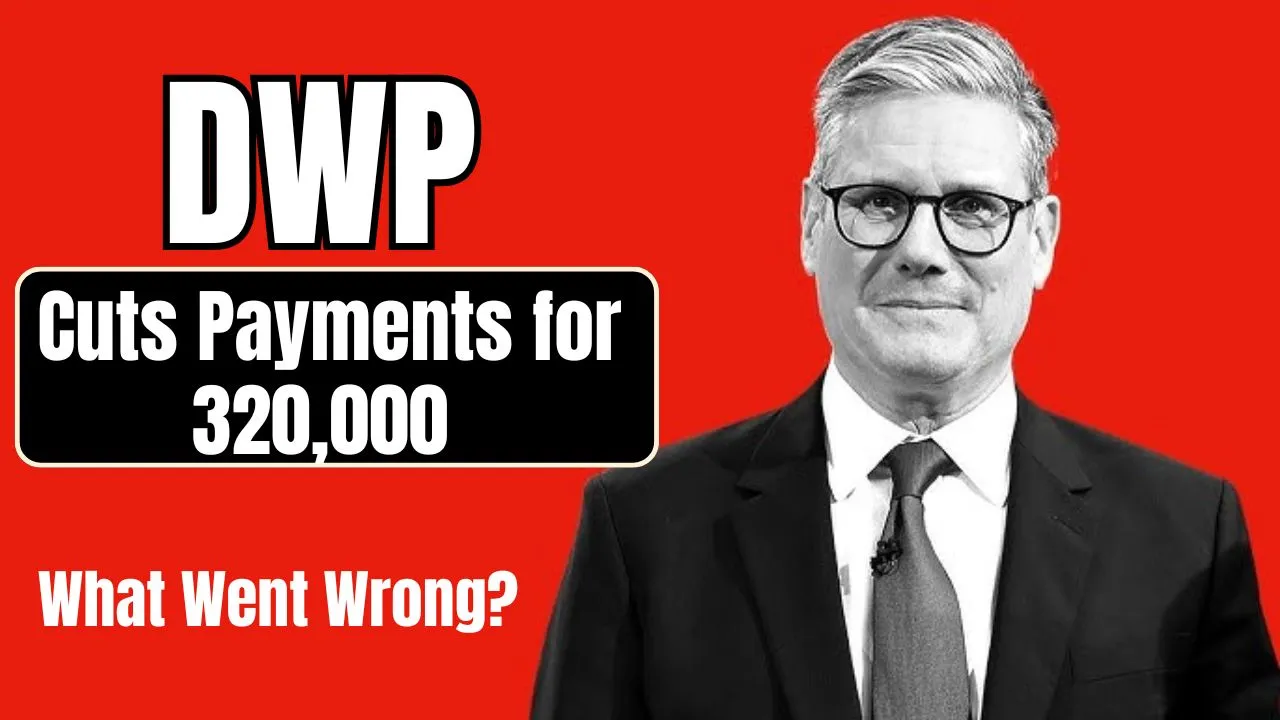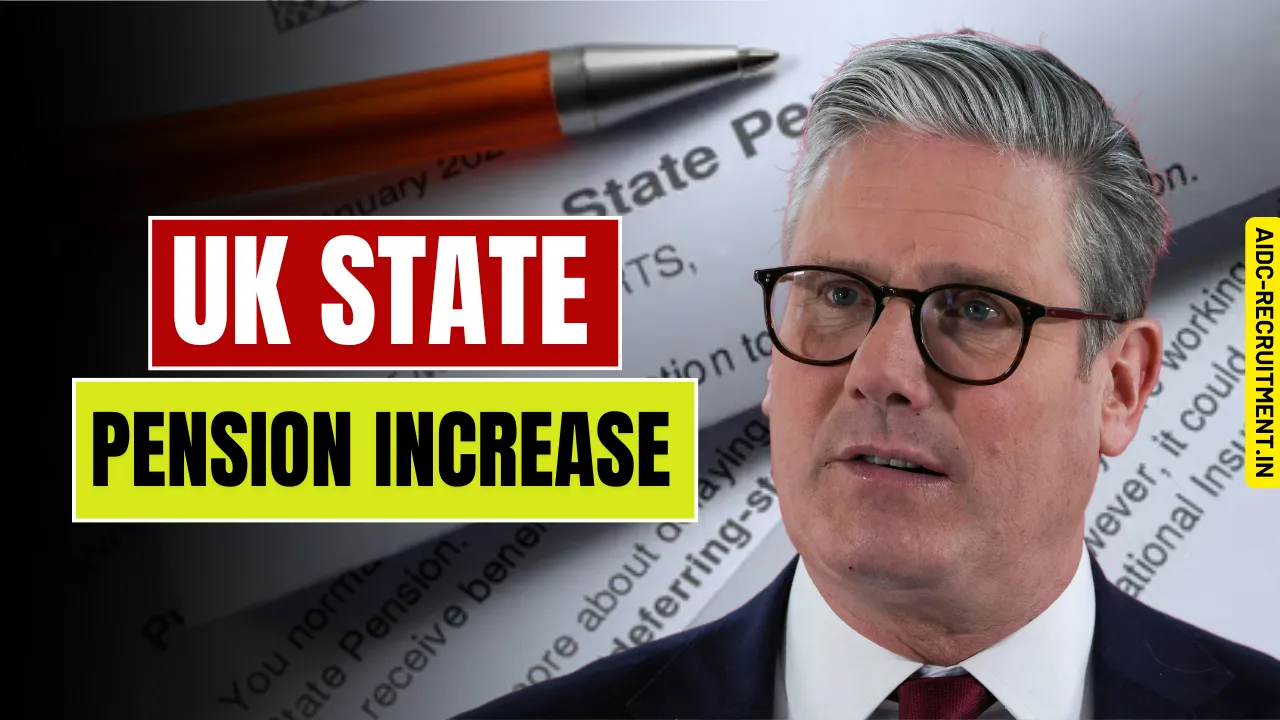DWP Cuts Payments: The Department for Work and Pensions (DWP) recently announced a halt in benefit payments for 320,000 claimants who failed to transition to Universal Credit (UC) as required. This development is part of the government’s ongoing effort to modernize the welfare system by phasing out six legacy benefits and introducing Universal Credit as a streamlined replacement.
While many individuals have successfully made the switch, a significant portion did not comply with the migration process, resulting in stopped payments. This article explores the reasons behind the payment cuts, the transition process, and how claimants can secure their benefits during this critical period.
Overview of DWP Payment Cuts
| Aspect | Details |
| Number of Affected Claimants | 320,000 |
| Reason for Payment Cuts | Failure to comply with Universal Credit migration instructions |
| Legacy Benefits Replaced | JSA, ESA, Income Support, Working Tax Credit, Child Tax Credit, Housing Benefit |
| Key Deadline | Three months and one day from receipt of migration notice |
| Support Helpline | 0800 169 0328 |
Introduction: The Push for Universal Credit
The UK’s welfare system is undergoing a significant transformation with the introduction of Universal Credit, designed to simplify benefits by combining multiple payments into one monthly deposit. The transition involves moving claimants off six “legacy benefits” and onto Universal Credit, with December 2025 set as the final deadline for the migration process.
While over 875,000 individuals have successfully transitioned to Universal Credit, the DWP revealed that 320,000 claimants failed to act on their migration notices, leading to the termination of their benefits. This highlights the importance of understanding the transition process and adhering to deadlines to avoid losing crucial financial support.
What Is Universal Credit?
Universal Credit (UC) replaces six separate benefits with a single monthly payment. The system is designed to streamline welfare support, reduce administrative challenges, and offer better financial planning opportunities for claimants.
Legacy Benefits Replaced by Universal Credit:
- Working Tax Credit
- Child Tax Credit
- Income Support
- Income-Based Jobseeker’s Allowance (JSA)
- Income-Related Employment and Support Allowance (ESA)
- Housing Benefit
Universal Credit simplifies the process for claimants while offering transitional protection to ensure no immediate financial loss during migration. However, failure to comply with the migration process results in the termination of legacy benefits.
Why Did the DWP Halt Payments for 320,000 Claimants?
The primary reason behind the stopped payments is non-compliance with the “managed migration” process. The DWP issues a migration notice to claimants, informing them of their requirement to apply for Universal Credit within a specified timeframe.
Key Reasons for Payment Halts:
- Missed Deadlines:
- Claimants are given at least three months and one day from receiving the migration notice to complete their Universal Credit application.
- Failure to meet this deadline results in the automatic termination of legacy benefits.
- Affected Groups:
- Working Tax Credit and Child Tax Credit recipients make up the majority of those affected, with nearly 220,000 claimants losing payments.
- Lack of Awareness:
- Some claimants were unaware of the migration requirements or misunderstood the process, leading to inaction.
How to Avoid Losing Benefits During Migration
For claimants, transitioning to Universal Credit requires prompt action and adherence to the migration notice. Here’s how to ensure your benefits remain uninterrupted:
1. Respond to Your Migration Notice Immediately
Upon receiving a migration notice, begin your Universal Credit application as soon as possible.
Applying within the deadline qualifies you for transitional protection, safeguarding your payments during the transition.
2. Seek Assistance if Needed
If you face challenges with the application process, contact the Universal Credit Helpline at 0800 169 0328 for guidance.
Additional resources, such as local welfare offices and online tutorials, are also available to support claimants.
3. Set Up a Bank Account
Universal Credit payments are made directly into a bank, building society, or credit union account.
If you don’t already have an account, open one promptly to avoid payment delays.
4. Manage Rent Payments
If you previously received Housing Benefit, ensure that your rent payments are correctly accounted for under Universal Credit.
The Managed Migration Process: Key Steps
The managed migration process is designed to ensure a smooth transition from legacy benefits to Universal Credit. Here’s what claimants can expect:
- Migration Notice:
- The DWP sends a formal letter explaining the migration process and specifying the application deadline.
- Application Period:
- Claimants have at least three months and one day to apply for Universal Credit.
- Transitional Protection:
- Eligible claimants receive temporary financial safeguards to prevent sudden reductions in payments.
- Payment Adjustments:
- Once the migration is complete, claimants begin receiving monthly Universal Credit payments.
- Consequences of Non-Compliance:
- Missing the deadline results in the termination of legacy benefits, as seen in the case of 320,000 claimants.
The Benefits of Universal Credit
Despite challenges in the migration process, Universal Credit offers several advantages:
- Simplified System: Combines multiple benefits into one monthly payment.
- Better Budgeting: Aligns payments with modern financial practices, such as monthly rent schedules.
- Transitional Protection: Ensures claimants do not face immediate financial losses during the migration.
- Enhanced Support: Covers a wide range of financial needs, from housing costs to childcare support.
Challenges and Criticisms
The migration to Universal Credit has not been without its difficulties. Critics point to:
- Stringent Deadlines: Many claimants struggle to meet the application deadlines.
- Complex Application Process: Navigating the online system can be overwhelming for some recipients.
- Lack of Communication: Some claimants report not receiving clear instructions or timely notices.
FAQs About DWP Cuts Payments for 320,000 Claimants
Q1. What benefits are being replaced by Universal Credit?
Universal Credit replaces six legacy benefits, including Working Tax Credit, Child Tax Credit, Income Support, JSA, ESA, and Housing Benefit.
Q2. Why did the DWP stop payments for 320,000 claimants?
Payments were stopped because these claimants failed to apply for Universal Credit within the deadline specified in their migration notices.
Q3. What is a migration notice?
A migration notice is a formal notification from the DWP informing claimants about their transition to Universal Credit and the deadline for application.
Q4. How can I avoid losing my benefits during the migration process?
Apply for Universal Credit immediately upon receiving a migration notice, and contact the Universal Credit helpline if you encounter issues.
Q5. What happens if I miss the migration deadline?
Missing the deadline results in the termination of legacy benefits. You can reapply for Universal Credit, but you may lose transitional protection.
Conclusion
The DWP’s decision to halt payments for 320,000 claimants highlights the importance of compliance during the transition to Universal Credit. While the new system offers significant advantages, claimants must be proactive in responding to migration notices and completing their applications.
For those yet to transition, acting promptly, seeking assistance when needed, and ensuring accurate bank details are essential steps. With Universal Credit set to fully replace legacy benefits by December 2025, understanding the process and adhering to deadlines is crucial to maintaining financial stability.
This transformation represents a critical shift in the UK’s welfare system, and success depends on both the efficiency of the DWP and the active participation of claimants. Ensure you’re prepared, act swiftly, and secure the benefits you’re entitled to during this pivotal transition.











